Chris Nott lives his passion through teaching martial arts. Here's how he got the business guidance that made that possible.
IN THIS EPISODE, YOU WILL LEARN:
- How martial arts business owners can benefit from martial arts events
- The struggles Chris Nott underwent while starting his martial arts school
- The importance of having a mentor for martial arts success
- How Chris Nott was able to turn his passion into a career
- Why it’s not yet too late for you to live your dreams
- And more
*Need help growing your martial arts school? Learn More Here.
TRANSCRIPTION
CHRIS: I think you, like any event that you go to, but especially for me The Main Event, because again it's run by people that already run successful schools … So there's a lot of events going on in our industry, and I like to go everywhere because that's where you learn, but specifically, if you run a martial arts school … An event run by somebody that runs multiple martial arts schools is for me a good thing already.
GEORGE: This podcast episode is the audio version of a video interview I had with Chris Nott. To get the full episode, access to the video, and to download the transcript, please go to martialartsmedia.com/58, that's forward slash 5 8. Here's the episode. Enjoy.
Hi, this is George Fourie, and welcome to another Martial Arts Media business podcast. Today, I am with Chris Nott, all the way from Mount Margate, Florida. How are you doing today, Chris?
CHRIS: I'm doing great, George. Good morning, buddy.
GEORGE: Awesome, and from FKA Martial Arts, and we're going to have a bit of a chat. We also are going to be meeting Chris officially at The Main Event in San Diego, so depending on when you're listening to this podcast episode, that is between the 26th and the 28th of April.
That's going to be a lot of fun, if you're a business martial arts school owner or instructor, you want to learn a little bit more. Going to be a great event to attend to. We'll probably speak a little bit about that, but first I guess we got to start right from the beginning. Who is Chris Nott?
CHRIS: Well, hi. So like the rest of you guys, martial arts is my passion, always has been. When I came to the US, I turned what was I guess a hobby in the UK, because I think back in the day that's more how martial arts was perceived, at least in England, but it's obviously changed now, but in America it was already run as a structured professional business, it was a way to, I guess, do something that you love, but also make a living at that and support your family at the same time.
So I'm very fortunate to do what I do for a living. My passion is teaching anybody, kids, adults, doesn't matter, but I would say mainly I really enjoy teaching children.
GEORGE: How did this journey all begin? You immigrated from the UK, came to the United States, where did it all sort of originate?
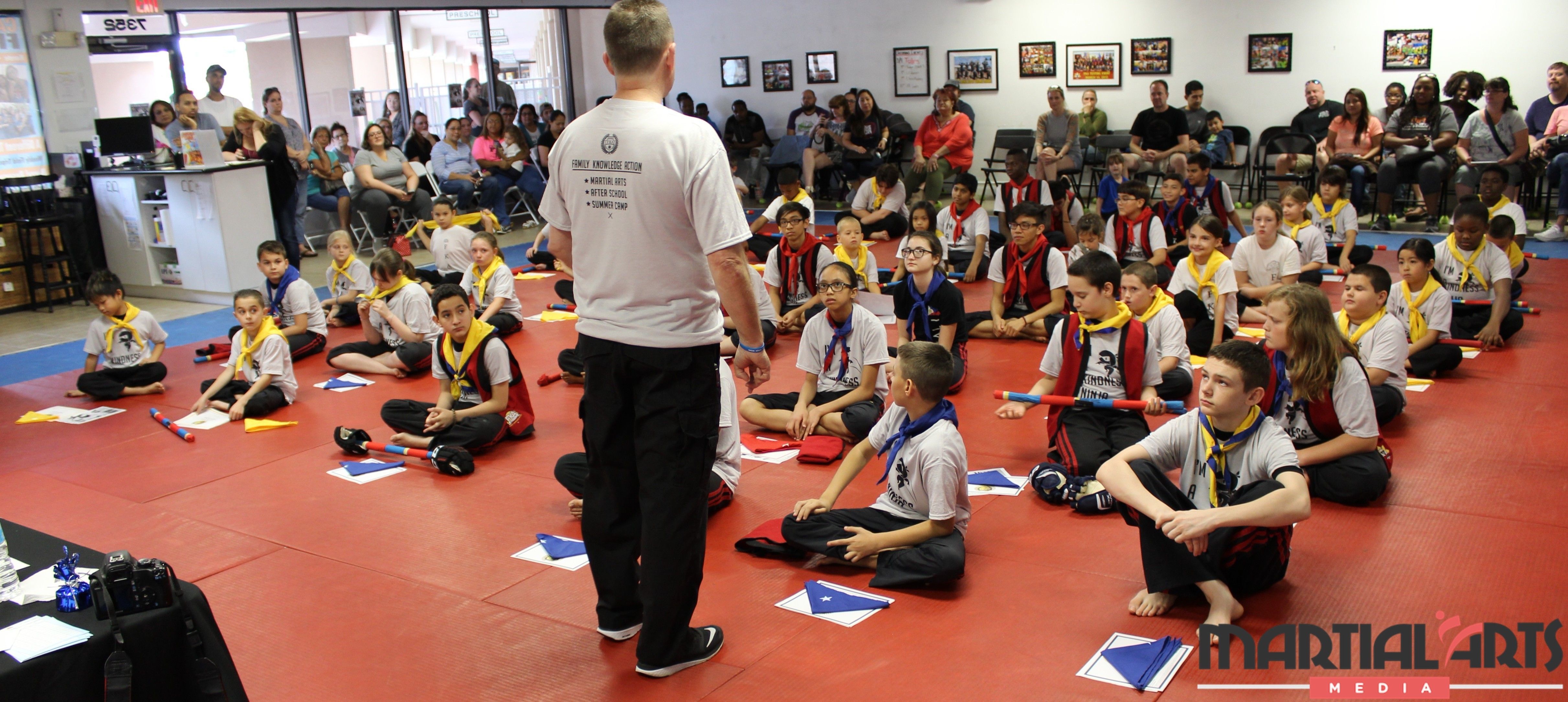
CHRIS: Yeah, that's a great question. As a kid, I dabbled in martial arts at different clubs, or youth clubs, I guess, in England. Played a lot of other sports, as well, you know. Football, what we know as soccer, but martial arts was always a passion. I think, I guess like everybody else around my age, when you once saw a Bruce Lee movie, you were like that's it, I want to be Bruce Lee. That's I guess kind of what drew me to martial arts.
And to the states in '87. I trained in a couple of different styles and systems, and kind of settled on a school up here and managed to find an instructor for Jeet Kun Do, which was my passion. That's where I started looking at the opportunity to, I guess, get involved in martial arts more as a career than something as a hobby.
At the time, actually my background, I was a French polisher. I went to London College of Furniture, so when I first came to the States that's what I was doing for a living. I actually worked down here on the yachts and boats, refurbishing, doing that kind of thing.
Eventually, when I got married and had kids, I kind of looked at that career path and said, you know, do I want to be around all those chemicals and dust and all that kind of stuff? Looking at my young family, I kind of want to grow up in a healthier lifestyle.
I got the opportunity through my training to go on to become an instructor, and then just decided to make a complete career change. That was I was probably, I came to this a lot later than most people, I was probably 29, 30 when I started. Most people have been doing this since they were children, at least involved in schools or living in the US.
I started my school, I stayed with that instructor for a while teaching, and eventually, I guess like we all do, you have a sort of yearning to jump out on your own and give it a shot, you know… I actually opened my school ten or twelve years ago in a community center located in the City of Margate.
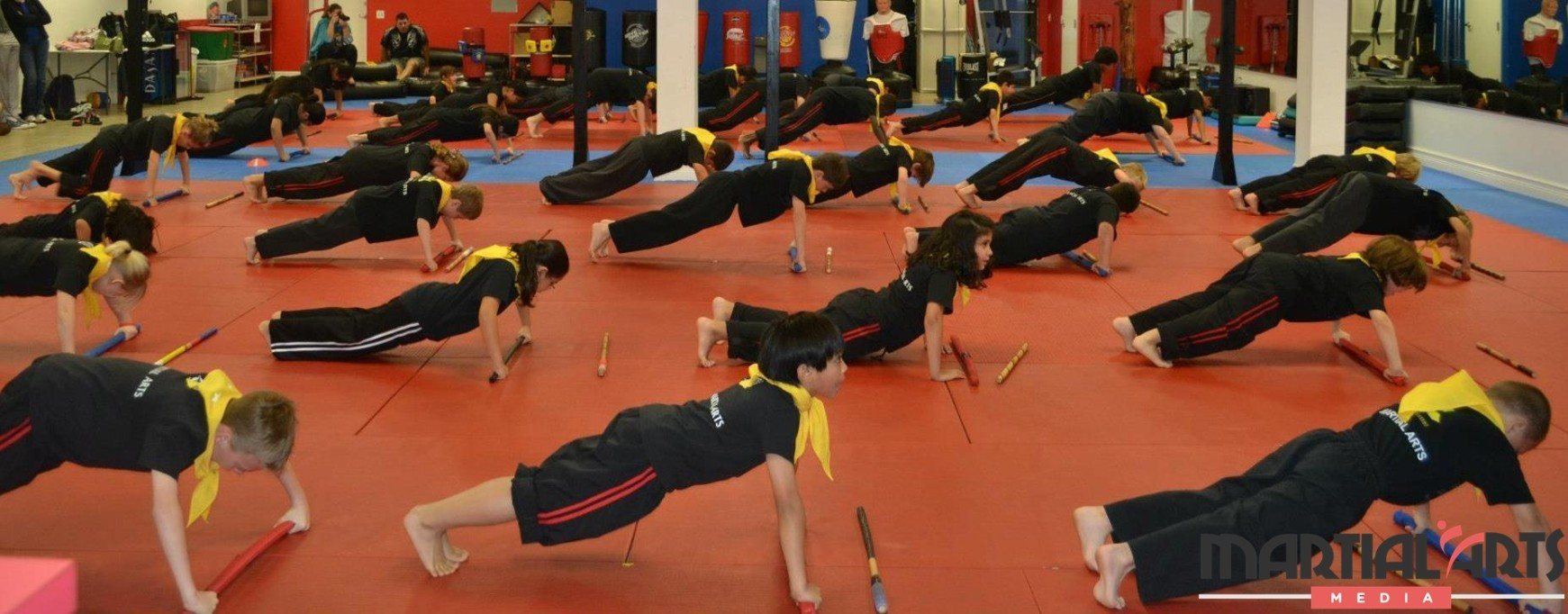
I started with two students, and over the course of three or four years, we grew that to about 100-150 students in the school, and I'm like hey, man, I could actually make a living doing this thing, you know? So I did a couple of Hail Mary’s, and we invested in the facility and the school. Be careful what you ask for because the first few years were a little harrier than I thought it was going to be. With perseverance and time, and studying and learning from people in our industry that have been there before us, we I think now got a really solid school, a good system. We have a good business.
My wife now works at the school. I have a few full-time employees. We run an afterschool, a summer camp program, a pretty strong kids martial arts program, and a good adult class at night. I guess that was the 100-mile-an-hour overview of how did I get involved with where I am now.
GEORGE: That's cool. What were those early obstacles? You say you started late. I mean I'm a complete latecomer, 36 when I finally started training martial arts because my son was training, so I thought it was a cool dad-son thing to get going. That got me into in super late, what I think is super late, although it's now my full-time passion. If you look at those early stages, what were the biggest obstacles you faced to really make that switch from taking your career into making that shift into full-time martial arts school?
CHRIS: I think always when you give up one career… I mean the career I was actually in was a career that generated very good revenue, so I mean I won't be cliché, but yes by giving up that kind of revenue that I was making to go into a business that I didn't have that at the time, I was lucky enough to have a wife that was super supportive. She had a good job, so that definitely, I guess, was like a good insurance policy, an umbrella for us, while we made that transition.
But yeah, you know, man, like everybody, when you start out, you struggle. There are some hairy months. You're like, oh my God, are we even going to be able to pay the bills? We went through all of that stress. But again, I think if you're able to do something in your life where you can line up your passion, and also turn that into something that generates a revenue, come on, man, that's the greatest thing, right? You get to wake up and do what you love. Again, not to sound cliché, but I guess the finances, in the beginning, were the obstacle and realizing maybe I didn't have all the tools to execute and do what it is I need to grow the school.
I think a lot of that comes down to if you, probably, if you start martial arts at a young age, and you're in a school, I don't know, I use Fred as an example, but if you're in a school like that where they're already successful, they have systems in place, the kids are going to come up through that structured system, and so they've already got all the tools to succeed.
You know what I'm saying? Versus you talk about you and I’m coming to the industry later, yeah, super passionate about martial arts, I think very lucky to have some awesome martial arts instructors, but maybe not the best business coaches in the world. So here you are like man, I got this great martial arts skill program I want to teach, and now how do I get the students, what's that all about? I'm sure people can relate to that.
GEORGE: That's an interesting topic because it's something that's been coming up a lot. Actually, I was writing an email about this about an hour ago, about advice within the industry. I think there's, I guess, and you see this in business and then you see this in martial arts, people get this superhero syndrome thing, that because you're successful in one thing, you assume that that advice applies to everything else.
I think because especially in martial arts when people reach such a high state of martial arts, that often we share business knowledge and things that they might not be that on top of, and people buy into that, they go the wrong way, get the wrong advice, and there's a lot of repercussions, of course.
CHRIS: Yeah, sure. Yeah.
GEORGE: How did you sort of getting to finding the right people to listen to, and the right business advice to move you forward?
CHRIS: First of all, by making lots of mistakes, unfortunately, I have to say. We learn I think more often, a lot more, from our mistakes than we do from the things that we do right. Then just sort of coming to a point where you're like oh, but I just don't know how to do this, or I don't know how to do that, I'd a better study. Right? Education is how we improve anything we do. If you don't know how to do something, you need to read or study. I guess in this day and age, Google it and watch it on YouTube. But even then, it's a good start.

I think at the end of the day, whatever kind of coaching you're going to get, my advice would be just simply this. Take a good look at the people you're about to go mentor and study under and look at what they've done. If they've been successful with that particular thing, there's a pretty good chance as long as you pay attention and listen to them and do what it is they ask you to do, you're going to have that same success, because it's proven. Does that make sense?
GEORGE: Yeah.
CHRIS: Versus hey, my friend told me this chap over there is doing this, let's try this, and now you're kind of just pissing in the wind, and you really don't know what kind of result you're going to get.
GEORGE: All right. Awesome. What sort of developed as your strength in the martial arts space?
CHRIS: Let's see, that's a good question. I mean I'm super passionate about teaching. I love to teach. If you're going to be doing your job, you better love what you do, you know? So I love to be on the mat, impart knowledge, see people learn and grow, and be a part of people's lives. I like to think I'm a pretty good people person. I wouldn't say accounting and bookkeeping is my strong suit.
God bless my wife for taking care of that side of our business. I enjoy, I guess, building our business, like day by day looking at what can we do next. I love the challenge of what are we going to do for our marketing this month, how are we going to grow the business, how can we impact more lives in our community by getting more students into the school. I would say those are my strengths.
GEORGE: Cool. I'm going to change gears. This just is a question I picked up looking at your website, fkamartialarts.com, but before we get to that, I think I just want to, I don't want to lose track from where we are…
CHRIS: Actually the site is familyknowledgeaction.com.
GEORGE: Family, Knowledge, Action.
CHRIS: Dot com. FKA, that's what it stands for, is Family, Knowledge, Action. So when we chose our school name, our philosophy is basically embracing families in our community and imparting knowledge through an action philosophy, and that's what became the name of our school.

GEORGE: Okay, because there's two. There's fkamartialarts.com.
CHRIS: Yeah. We actually for marketing, we have like a ton of different websites…
GEORGE: Right, okay.
CHRIS: Websites, but if you really want to kind of get a feel for who we are as a school, familyknowledgeaction.com will give you a good overview of all the different programs. I don't say that as a plug. I know you can edit that out, just so that you have the right address if people are looking at it, you know?
GEORGE: Okay, that's good, because that's the website I was looking at. I did because we develop websites for martial arts schools, so it's obviously always one thing I look at, and always look at just what people are doing.
CHRIS: Yeah.
GEORGE: Internal critique, is that good, could we do better…
CHRIS: Yeah, oh. Yeah, for sure, all the time.
GEORGE: Just I found it very cool, and I don't want to get into a big technology talk, but I found it very good the way, the style that you had on fkamartialarts.com, just with using the sort of WordPress blog type template, but really good strong headline, really talking to your audience, parents and kids. Really good keyword structure and so forth. Is that something that you pay a lot of attention to with your school marketing?
CHRIS: I really can't take credit for that, the websites. I'm involved in many different groups in our industry. I consult … Again, I basically like to think we have two companies running out of one location. We run a martial arts program for children and adults, and as I mentioned earlier we also have an afterschool and a summer camp program. Well, I think the confusion for a lot of people is they try to run them like they're the same business. They're really not. They're two separate companies, I have two separate staff teams, et cetera, et cetera, and therefore you need two separate kinds of marketing strategies for those programs.
I'm not trying to plug here, but I do mentor with an afterschool and summer camp program called Mast, and actually Dwayne, Dwayne Spries is the chap that runs that, and he's the one that I have to credit for the website. I can tell you that for us they work. We generate lovely. They may not look like the fanciest website on the planet, you know what I mean.
I know there's a lot of other sites out there with many more bells and whistles, but sometimes I think less is more, right? Simplistic. As you just mentioned, big, bold headlines, hit you in the face. Looks more like a newspaper with some cheesy pictures on it.
GEORGE: Yeah.
CHRIS: It gets the job done. At the end of the day, our websites are … You know, I think we used to think that they were like oh, we got to show who we are, and all of our cool stuff, and look at all … No, we don't. They just want to know who you are, what are you going to … exactly, what.
GEORGE: All the bling at the back.
CHRIS: Yeah, but what do people really care about? What's in it for them, what are you doing for them, what services can you offer them. They don't care about your history, and I was born on the top of a mountain, and whatever that nonsense is. Anyhow, the sites work well for us. Yes.
GEORGE: Yeah. It's something we always talk about because we're always talking about conversions and websites. I just noticed that it really ticked the boxes, which was really good in the simplicity of it, which I think vouches for I think people get way too carried away with technology, and that's really web developers' fault because most web developers don't understand marketing and strategy, so they come to the party with the design aspect, how can we make this look flashy, and it actually just distracts from the user experience, which means not easy, people leave, get frustrated, they're not getting the actual message to fulfill their need, what they're actually looking for.
CHRIS: Yeah. I think, George, I 100% agree with you, mate. You know, at the end of the day, we look at our schools, and we have these opportunities, what we call our pillars of marketing, what do you have that's going to help you grow your school. Well, that's what your website, in my opinion, for whatever it's worth, should be, something that's going to help generate or explain who you are with a good sort of lead capture to get people interested, and as you said a good hook to get people to jump on and say hey, let me check this place out, man. For what it's worth, that's what I think, but what do I know? I'm no expert on websites and all that kind of stuff.
GEORGE: That's awesome. Cool, so getting back to I guess The Main Event. You're going to be speaking about a few things. If people had to come down to San Diego, which I think I'm travelling 25 hours to get there, so I think anybody in America could definitely make the trip, but what would you be … Sorry to cut you off there, but what are you going to be speaking about? What can people expect from your perspective?
CHRIS: Actually, I'm not speaking. I mean I will speak, but I'm teaching, so I'm not speaking so much as standing up there to give a dissertation or a speech about any particular topic. I wouldn't say speaking is my strong suit. Again, I love to teach, and I've been lucky enough to teach at The Main Event for the last three or four years, and again I just enjoy it. I'm going to teach a seminar. I know Fred said last year it might be an hour or two hours.
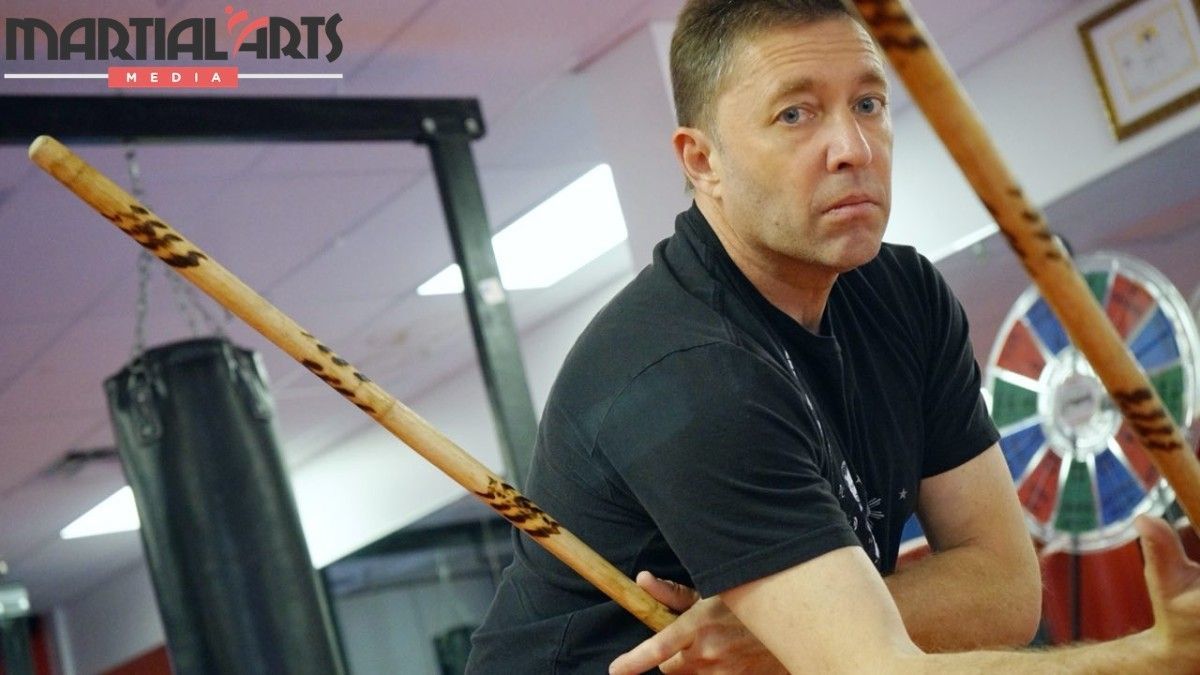
I'm not quite sure how long it's going to be, but I'm going to do my best in the time I teach to just share some of the core weapons-based drills that we do at our school, give a value to some of the instructors that come train, and if they have a good time that's awesome. Also, if they can take some of that information back and apply it to their schools, so whether they use it to help a weapons class, maybe a seminar, can use it in a birthday party, buddy days, add it to a little bit of the self-defense classes for adults, I'm going to try and quickly touch on a lot of different topics, and just give some value, I guess. That will be the goal. Make sure everybody has a good time, work out, and learn something.
GEORGE: Awesome. For you, as you have mentioned you've been to The Main Event the last four times, what do you feel as a school owner, what do you feel a school owner and an instructor would get out of going to an event like The Main Event?
CHRIS: I think like any event that you go to, but especially for me The Main Event, because again it's run by people that already run successful schools, so there's a lot of events going on in our industry, and I like to go everywhere because that's where you learn, but specifically if you run a martial arts school, an event run by somebody that runs multiple martial arts schools is for me a good thing already, because you know the content that you're going to get is going to be super relevant to what you do on a day to day basis, I guess, in your own school.

So whether you're looking to learn more about the business side of your school, learn a little bit more about the marketing side of your school, get some great tips on how to teach better classes, student retention, I've found that all of that is packed into the event, and again it's being given to you by people that have already done this over time. That to me is, again, you're going to learn, go study from people that already do it and have been successful with it, I would say.
GEORGE: Good point. Awesome. Hey, Chris, been great speaking to you. Is there anything that I should have asked you that I haven't asked you? It's the cliché question, but I'm asking it.
CHRIS: Would you like a pint, mate?
GEORGE: Well…
CHRIS: You didn't ask. You're an Aussie, that's just so rude.
GEORGE: It's twenty to eleven. I could probably pass. If you said yes, I would have some concerns.
CHRIS: Yeah, think of coffee, mate, it's too early for that. Maybe when I see you in San Diego, definitely we'll grab a beer together and chat. That would be awesome.
GEORGE: That'll be fantastic. All right, awesome. Chris, great speaking to you. If anybody wants to find more details about you, you mentioned the website that you corrected me on.
CHRIS: It's familyknowledgeaction.com. That's our school website. If not, people can message me on Facebook or whatever. I'm pretty accessible most of the time, so there you go.
GEORGE: All right. Awesome. Good stuff, Chris. I look forward to seeing you in San Diego and see you soon.
CHRIS: Alright, brother. Thanks, mate. Have a good one. We'll talk soon, okay?
GEORGE: Cheers.
CHRIS: See you.
GEORGE: Fantastic. I hope you enjoyed the interview. As mentioned, Chris and I will both be at The Main Event, so depending on when you're listening to this interview that is between the 26th and the 28th of April, and that will be in San Diego. For more details, you can go to the-main-event.com.
Otherwise, if you need help with your marketing, if you need help growing your school, if you are begging to get moving with your online campaigns, whether that's Facebook, Google, if you need to know how this whole search engine optimization thing works, it's one thing to hire a company, the other is to actually have the understanding yourself, and have a bit of a strategy before you hire someone.
That way you're a bit more in control of your business, and know what the right things are to do, and save a lot of money just on wasting time with people that might not be onboard with your martial arts business.
If you need any help, reach out to us. You can find more details, get in touch with us at martialartsmedia.com, or if you want to inquire about our martial arts academy program, you can go to martialartsmedia.academy. Thanks. I'll speak to you soon.
*Need help growing your martial arts school? Learn More Here.
Enjoyed the show? Get more martial arts business tips when you subscribe on iTunes for iPhone or Stitcher Radio for Android devices.




 When I came here, I was passionate about my martial arts. Schooling was my parents’ directive to me more than my own, even though schooling is very important and I did schooling and I recommend everybody does get their schooling and degree, because that's your plan A.
When I came here, I was passionate about my martial arts. Schooling was my parents’ directive to me more than my own, even though schooling is very important and I did schooling and I recommend everybody does get their schooling and degree, because that's your plan A. 
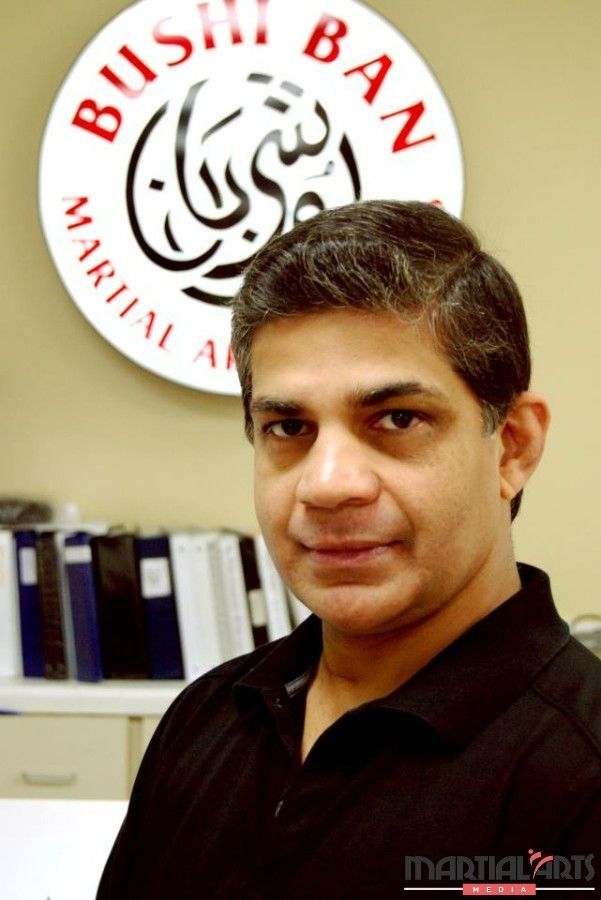 ZULFI:
ZULFI: 
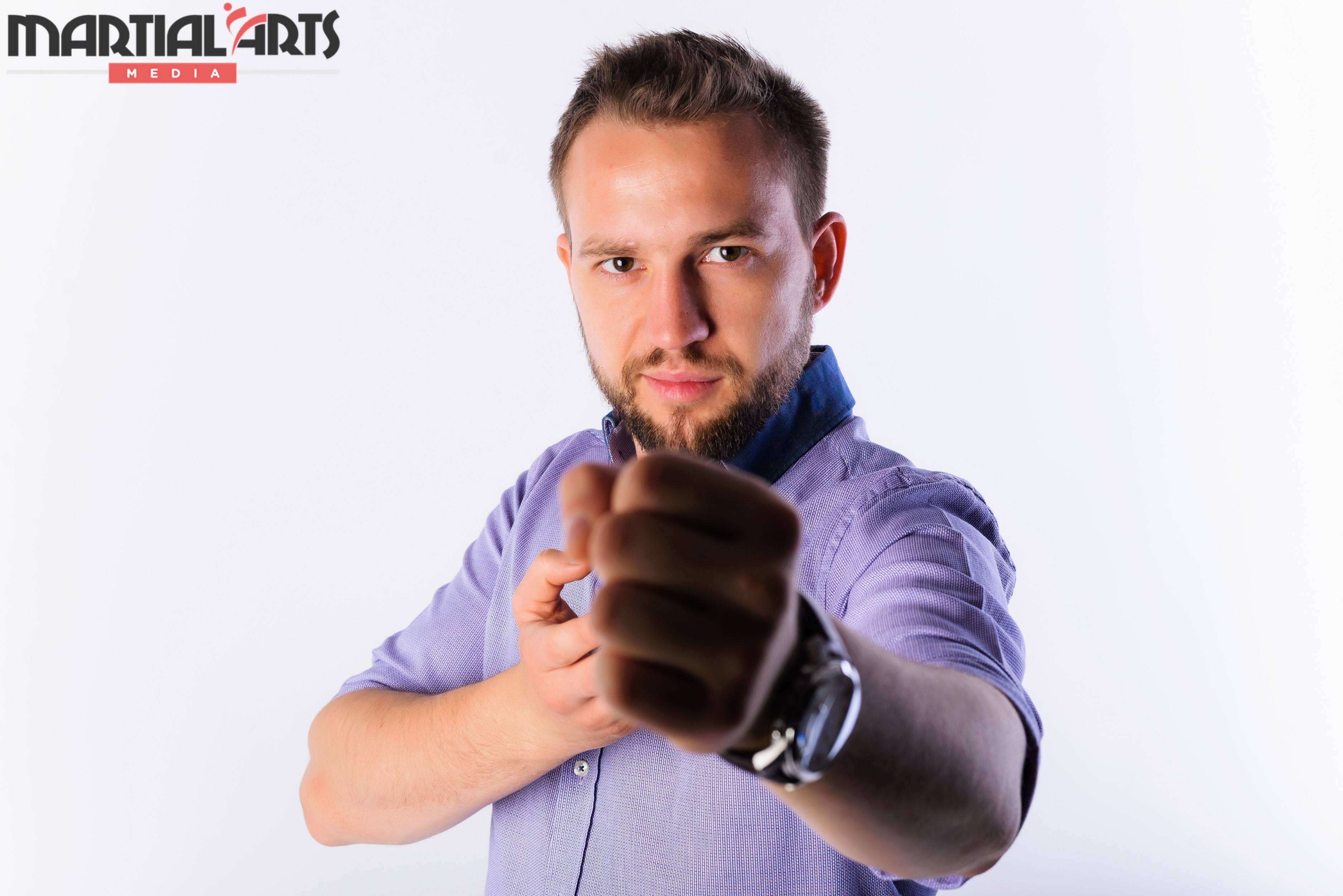
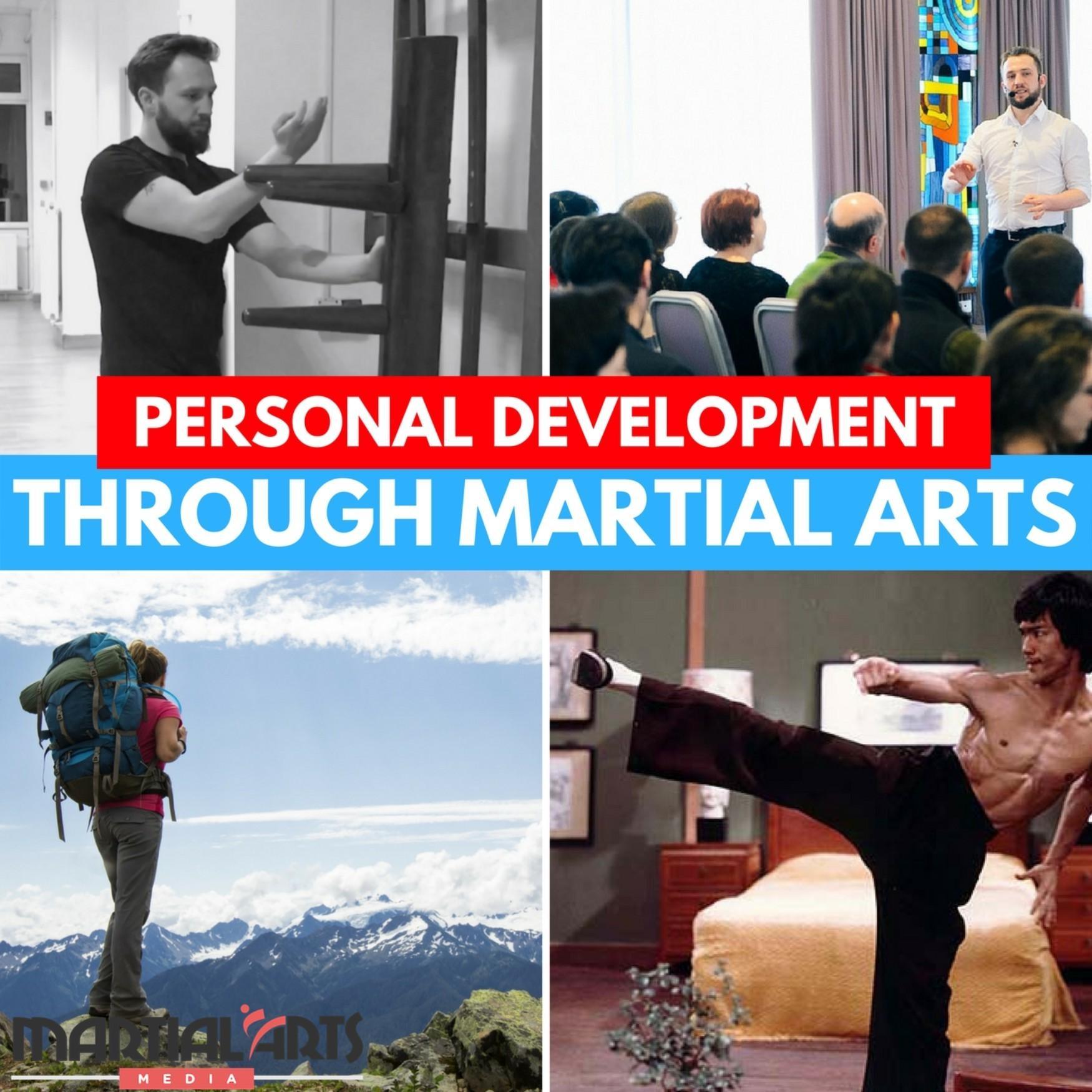
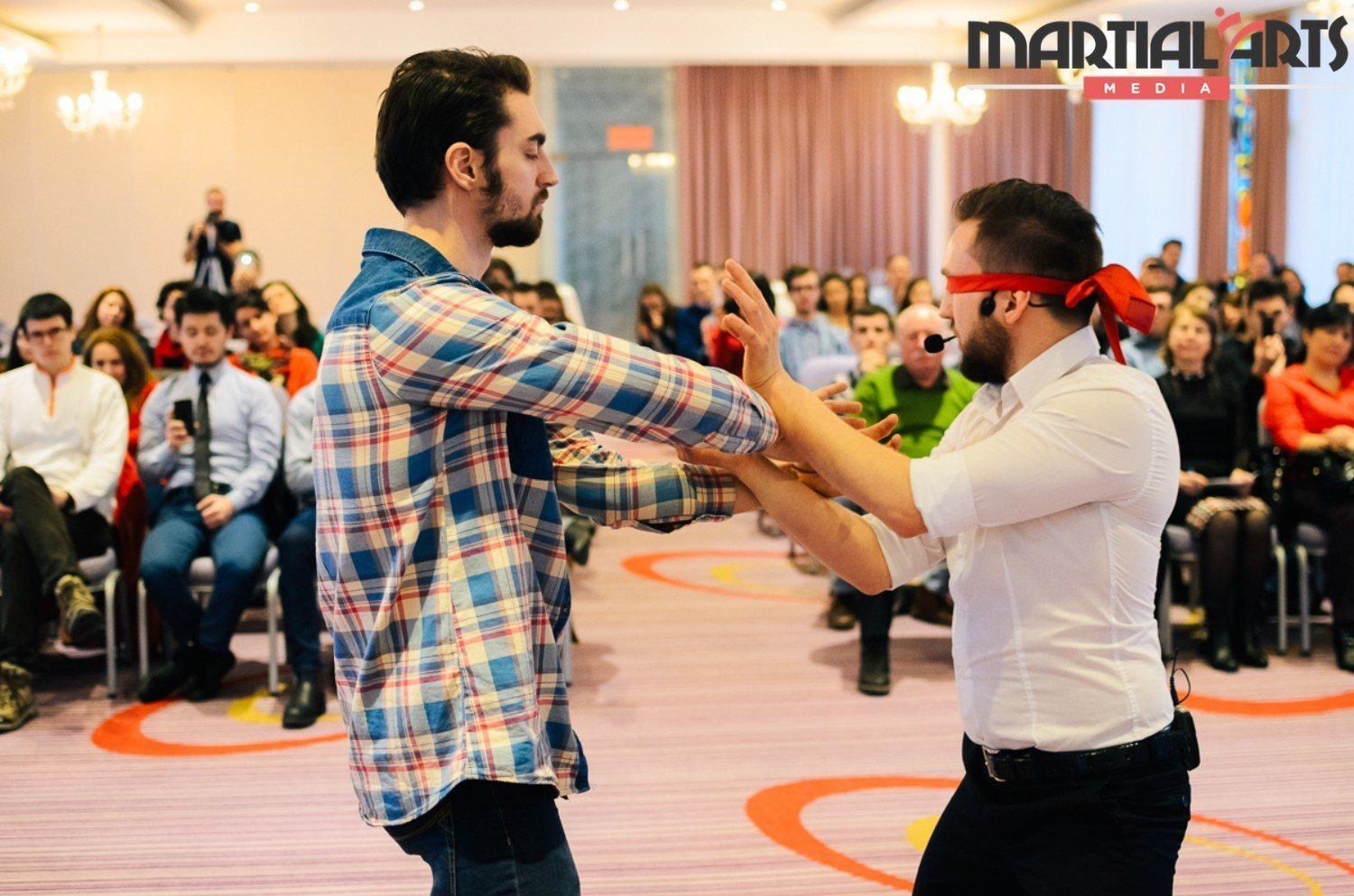
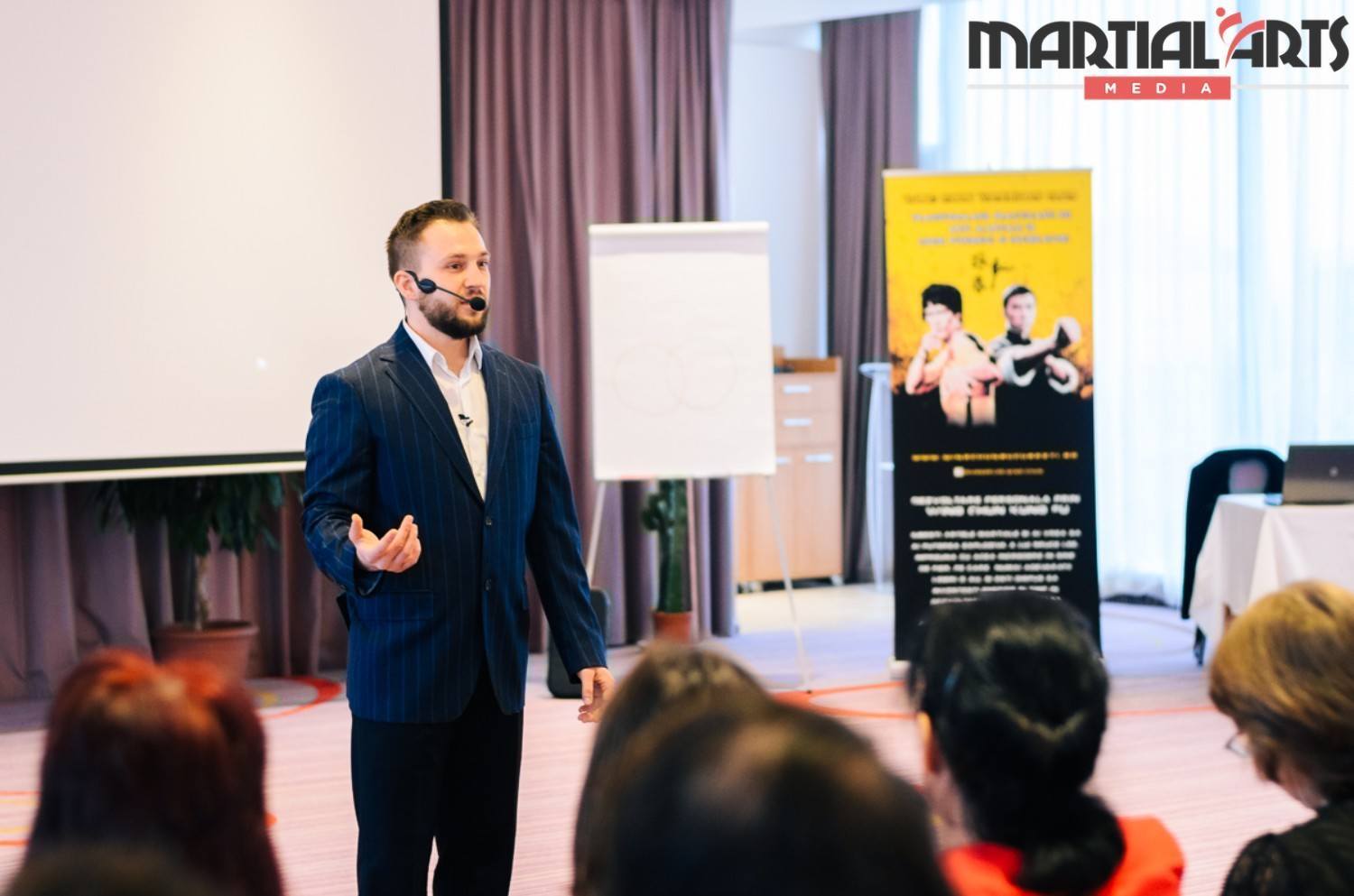
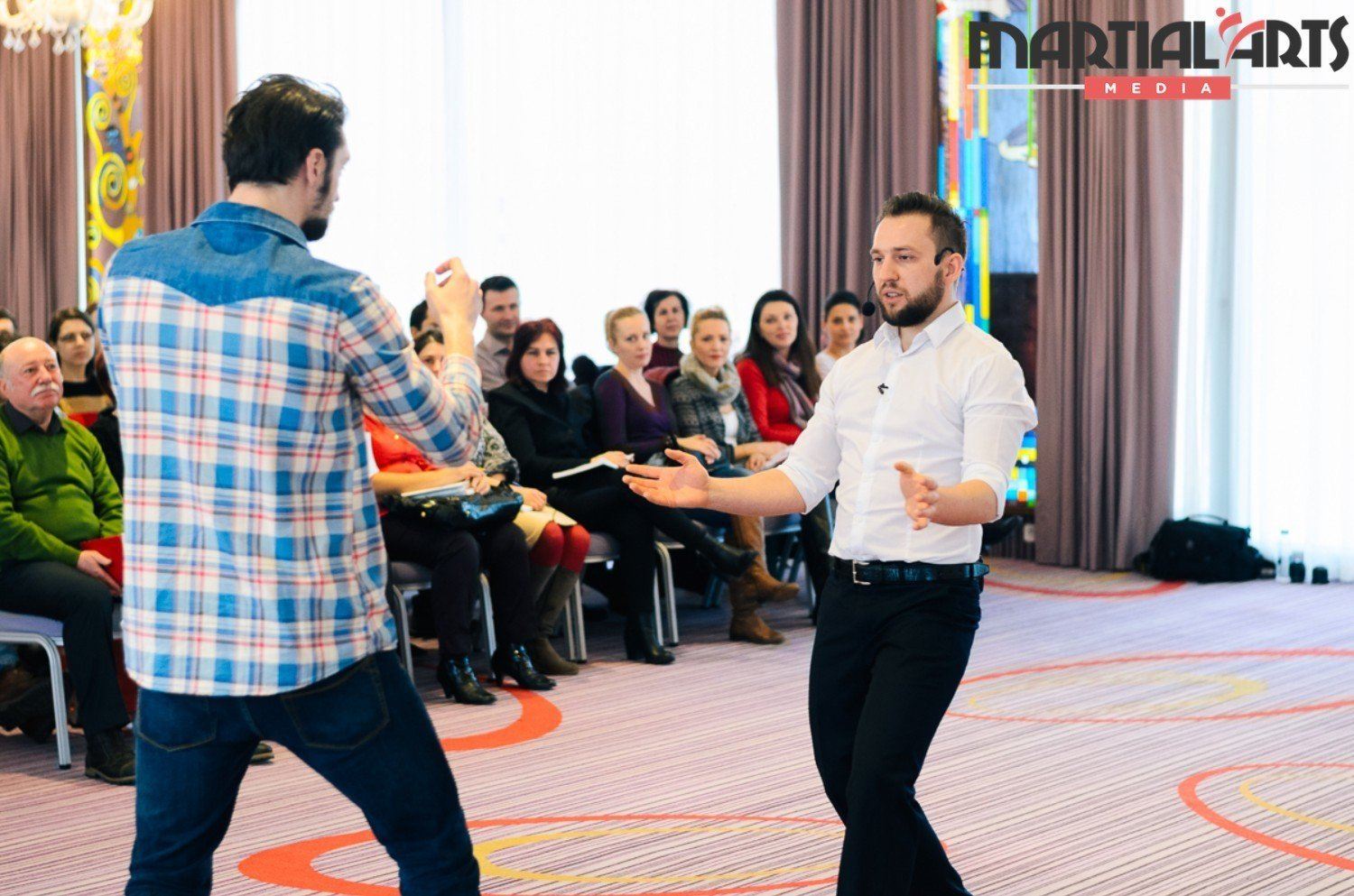
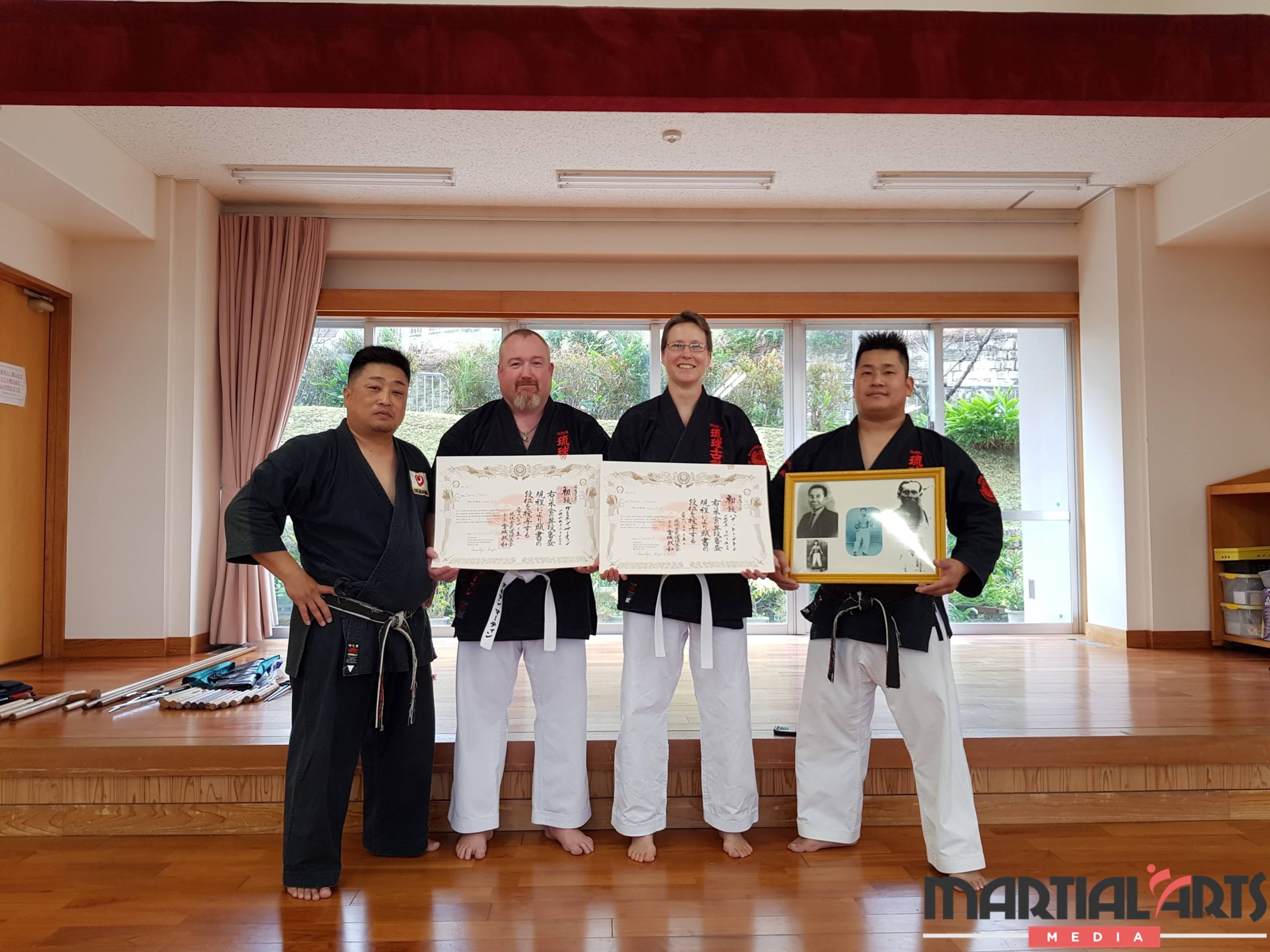
 DAMIEN
DAMIEN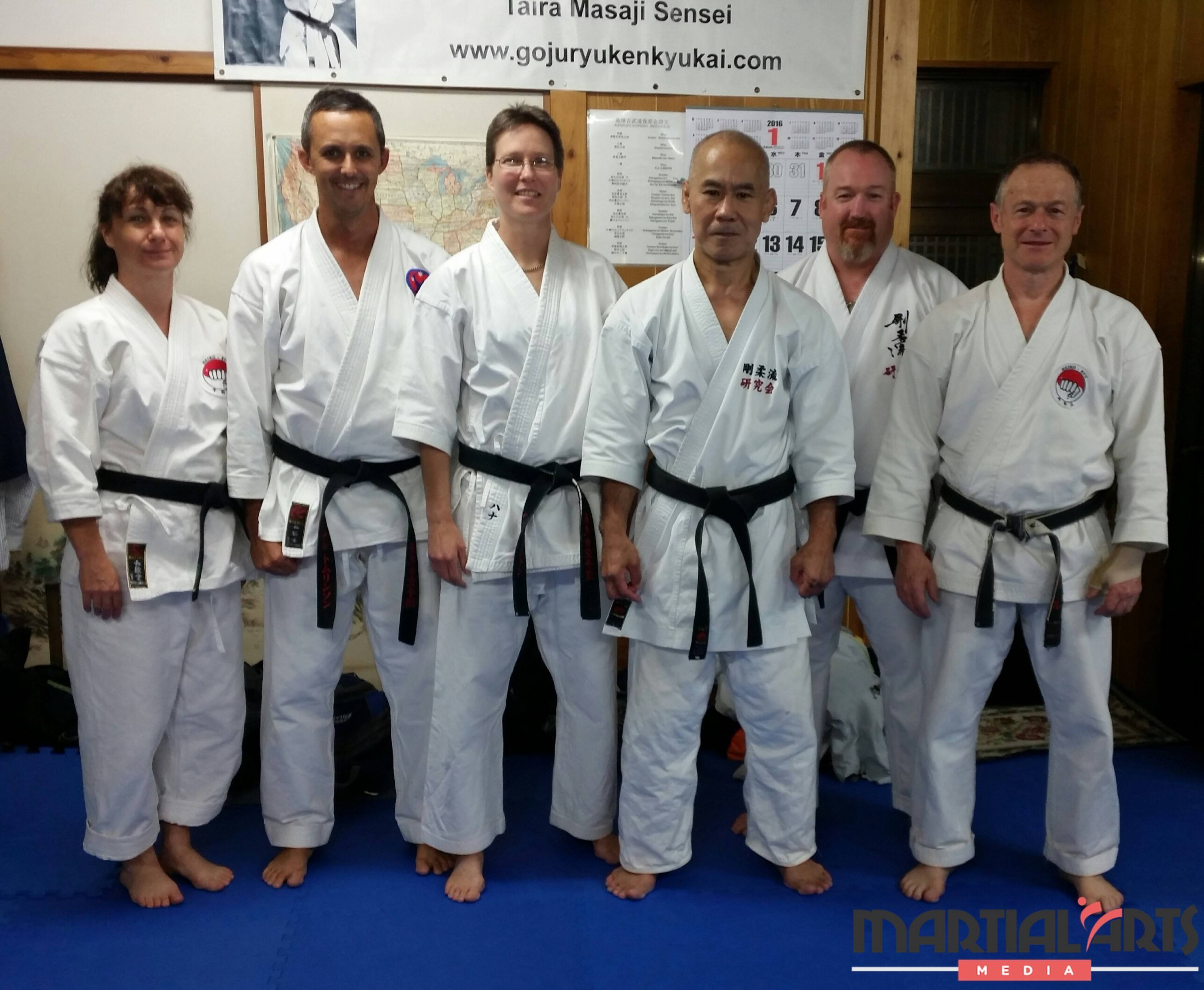

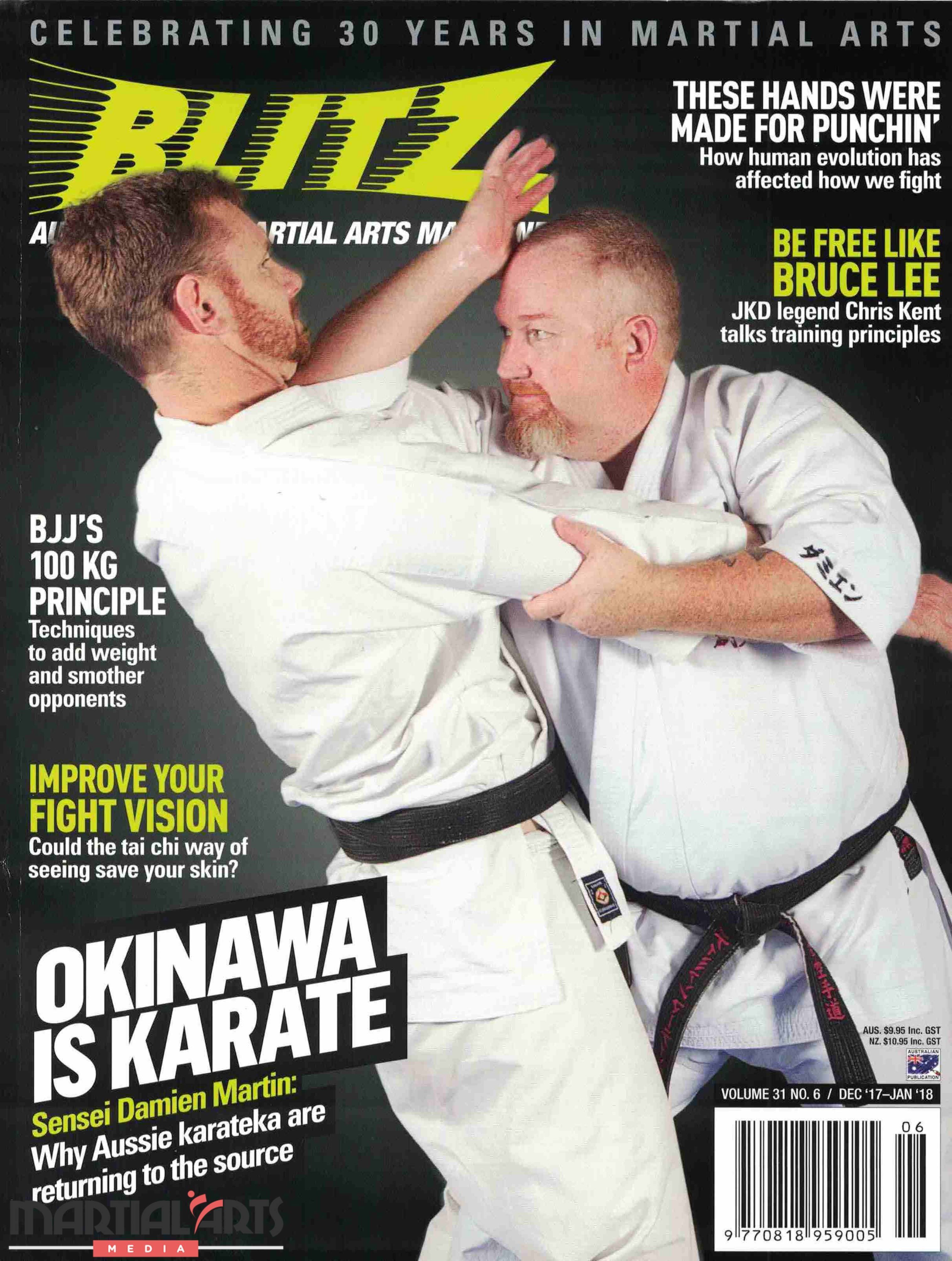

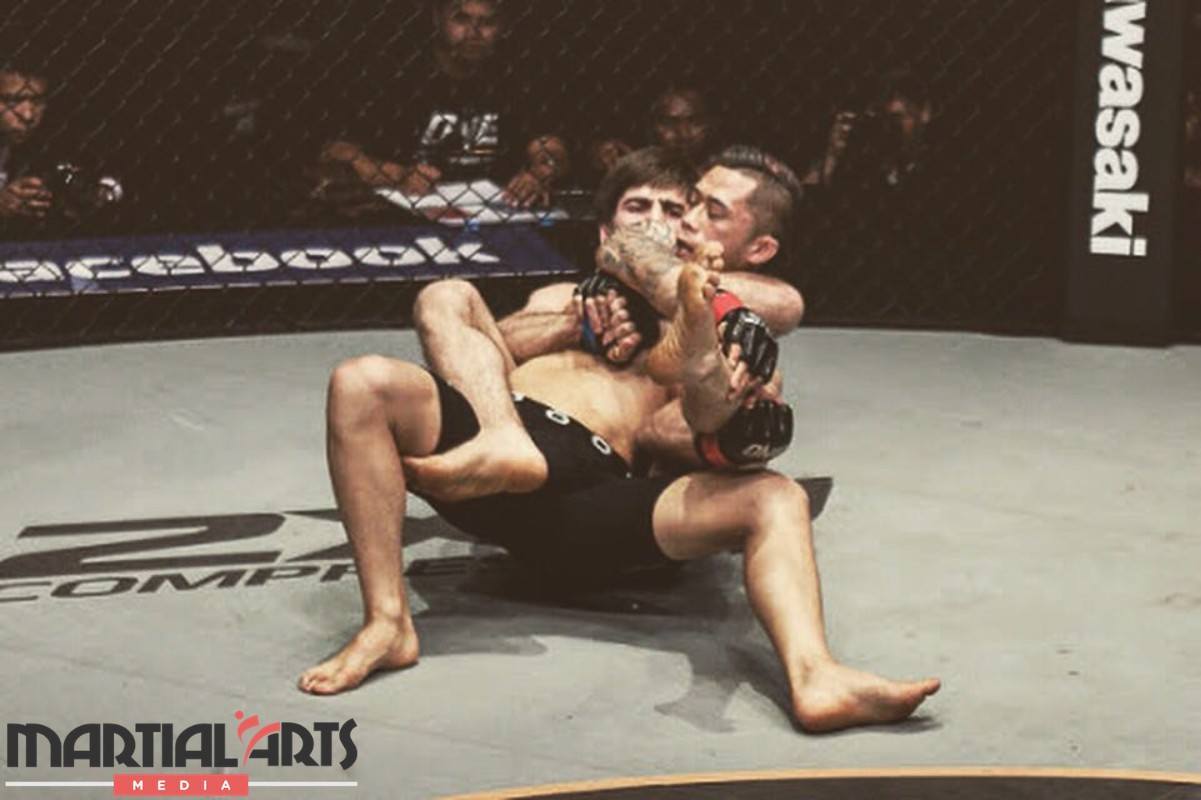

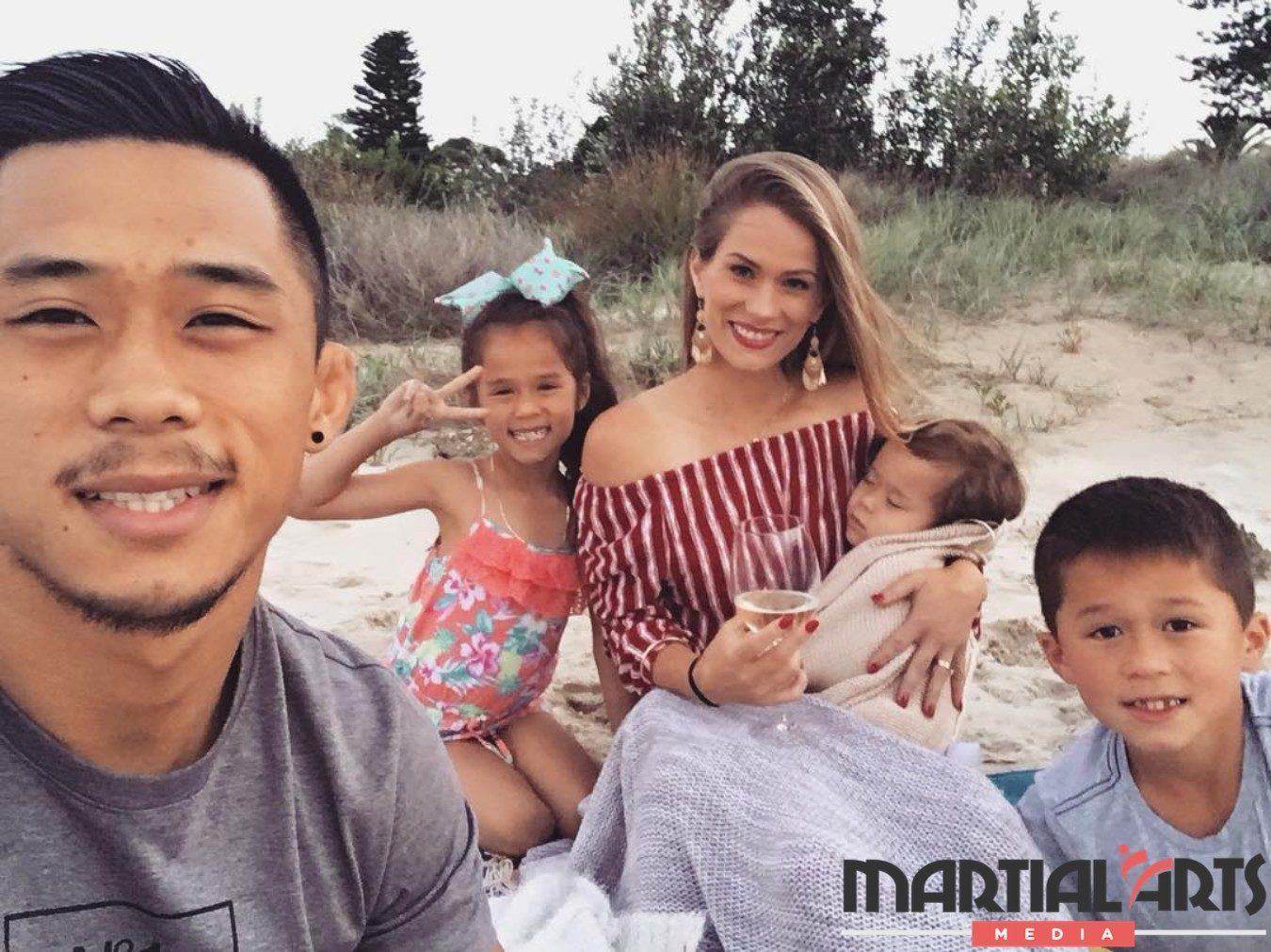

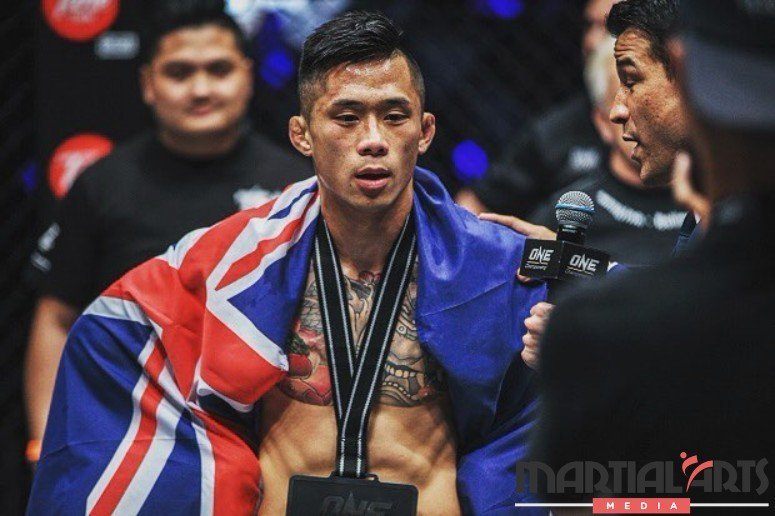
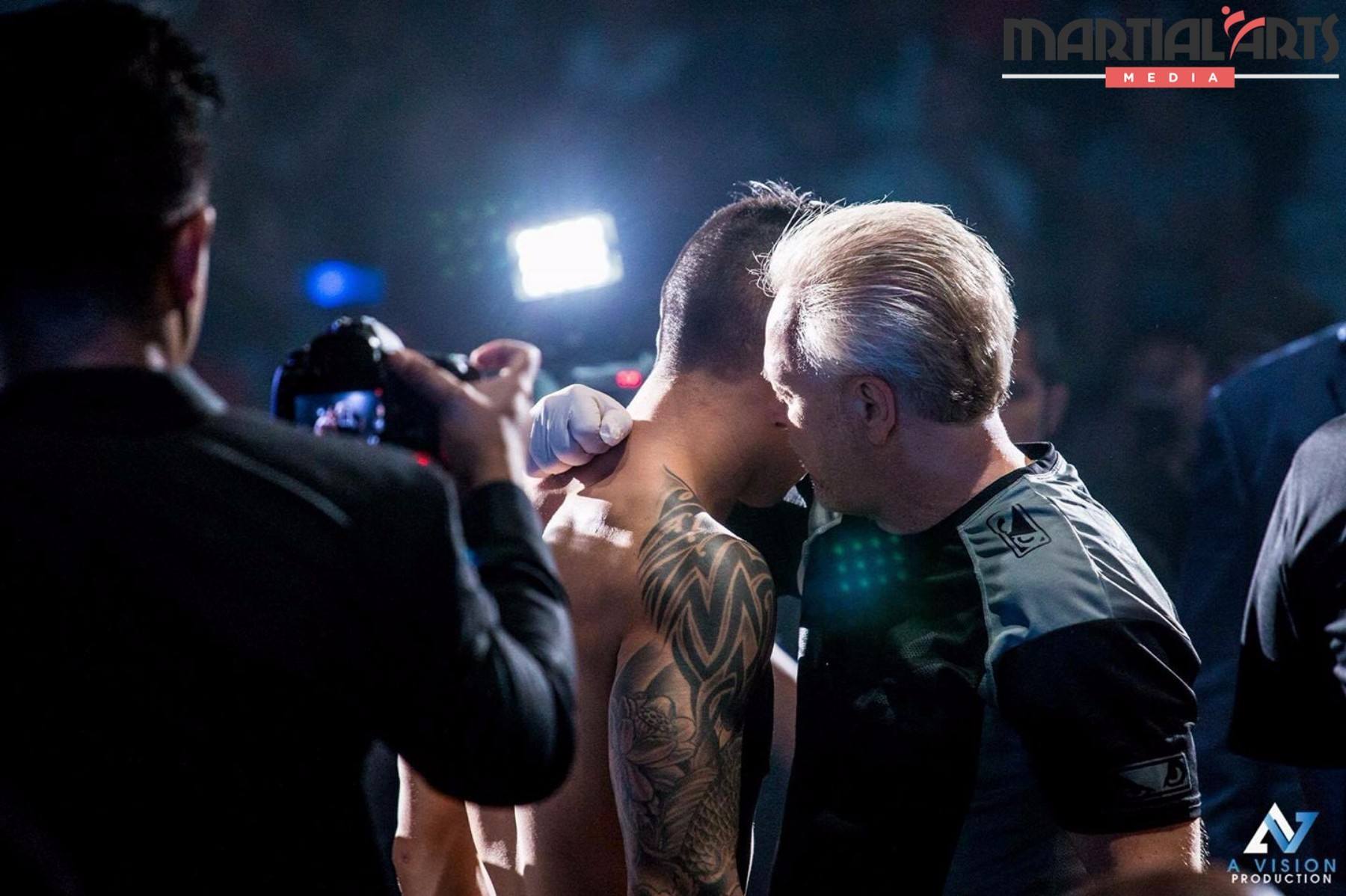

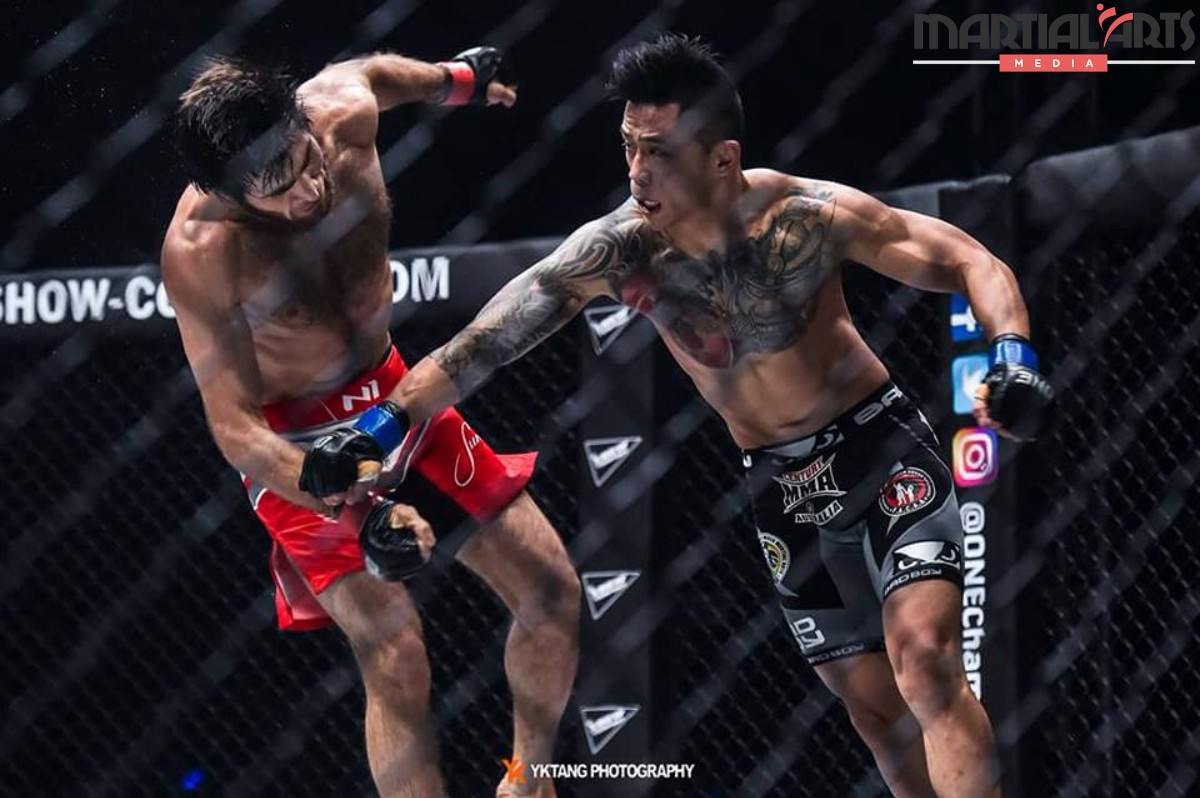

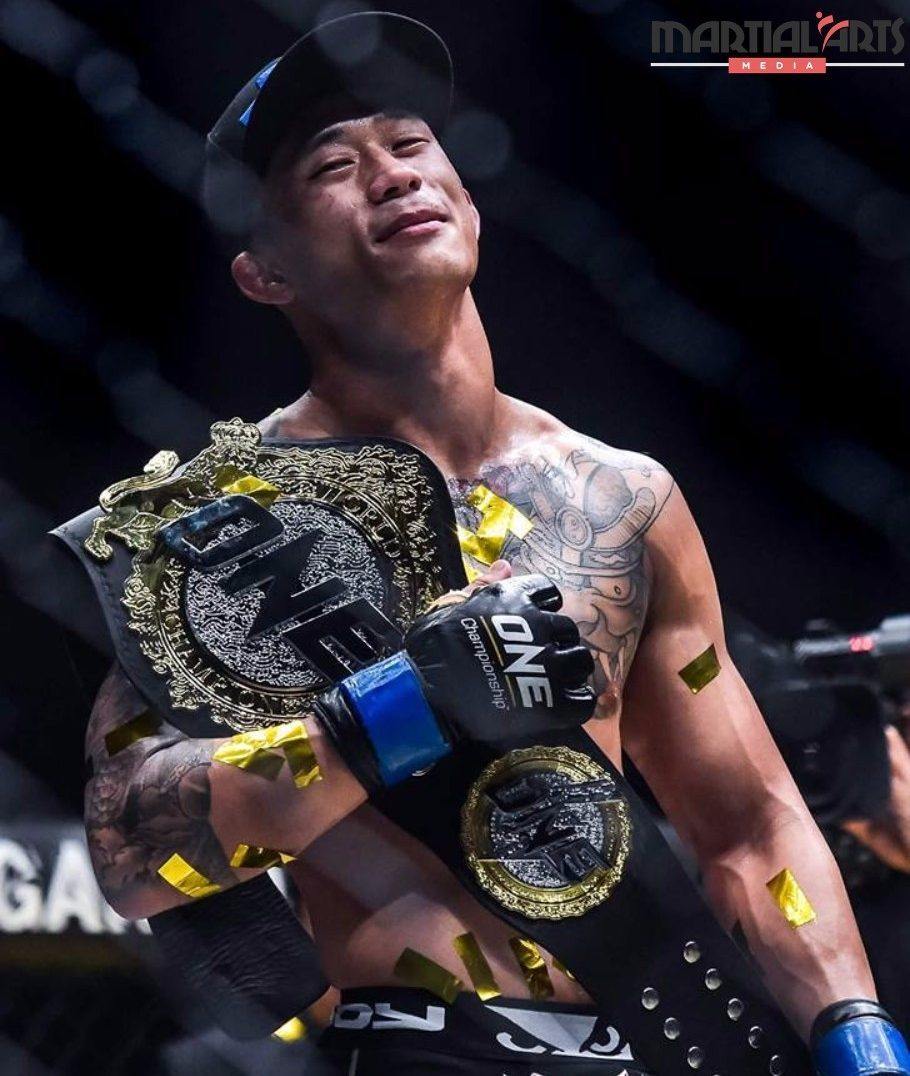

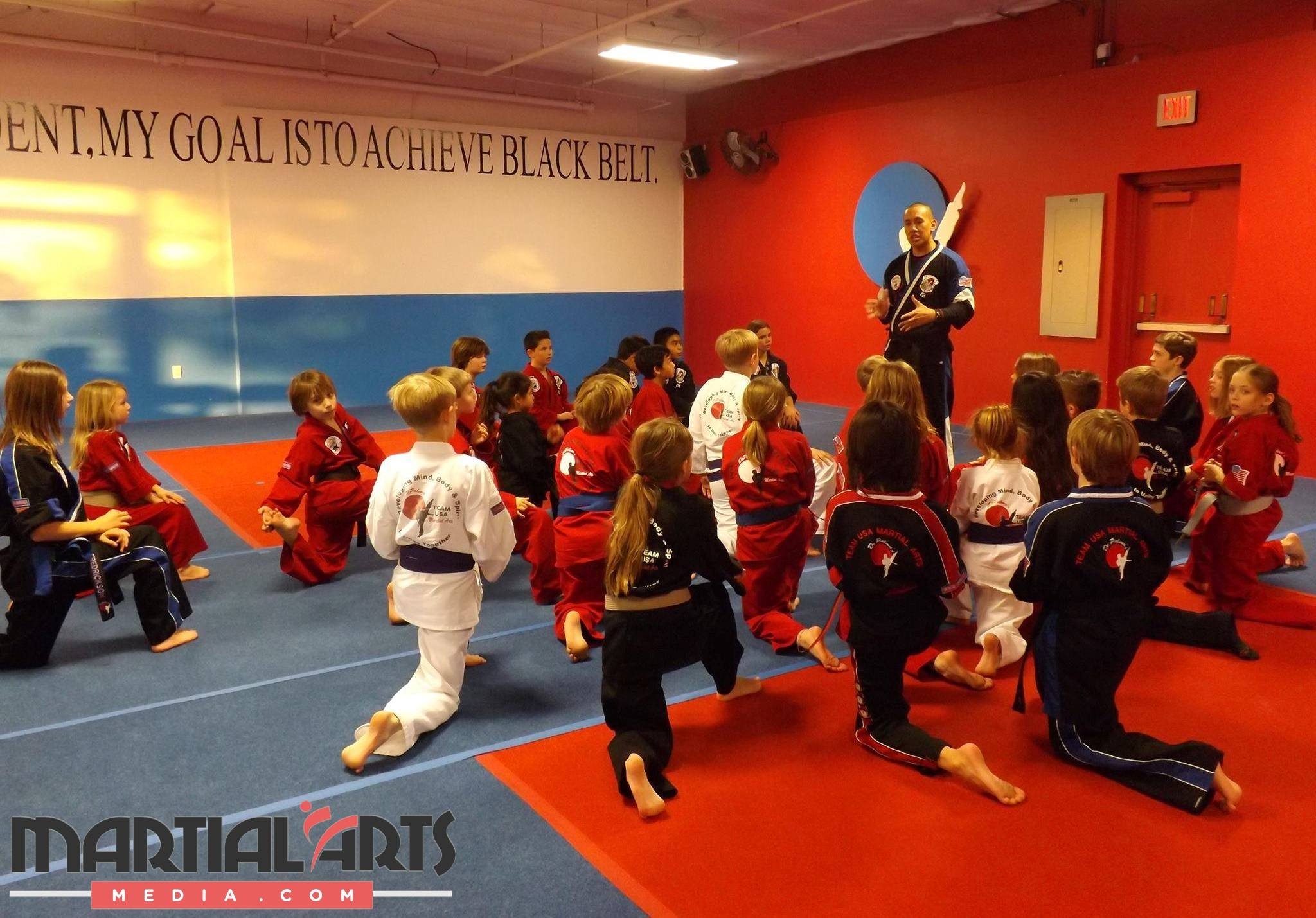
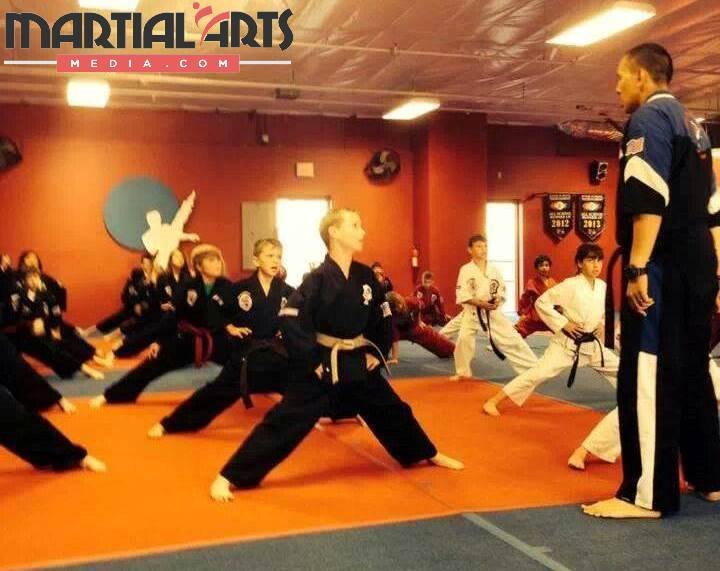
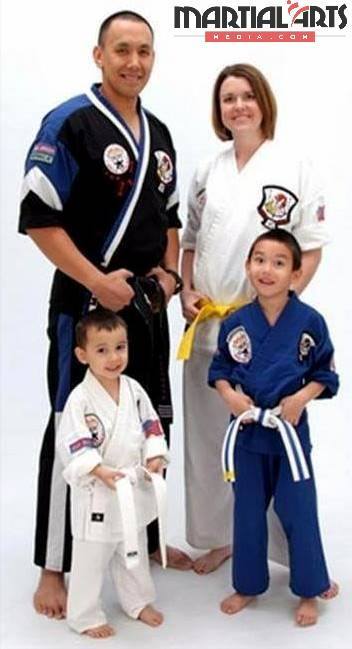 Energy is – actually let me kind of segway this a little bit: before I teach, I'm a business owner, so I’ll do all my business stuff in the morning and early afternoon, but before I teach, no matter what, I usually take at least 30 minutes to an hour of me time before I have to teach that day. Whether it’s a private class at 3:30, even if I might have been at the school all day, at 2:30, I get in my truck and I drive.
Energy is – actually let me kind of segway this a little bit: before I teach, I'm a business owner, so I’ll do all my business stuff in the morning and early afternoon, but before I teach, no matter what, I usually take at least 30 minutes to an hour of me time before I have to teach that day. Whether it’s a private class at 3:30, even if I might have been at the school all day, at 2:30, I get in my truck and I drive. 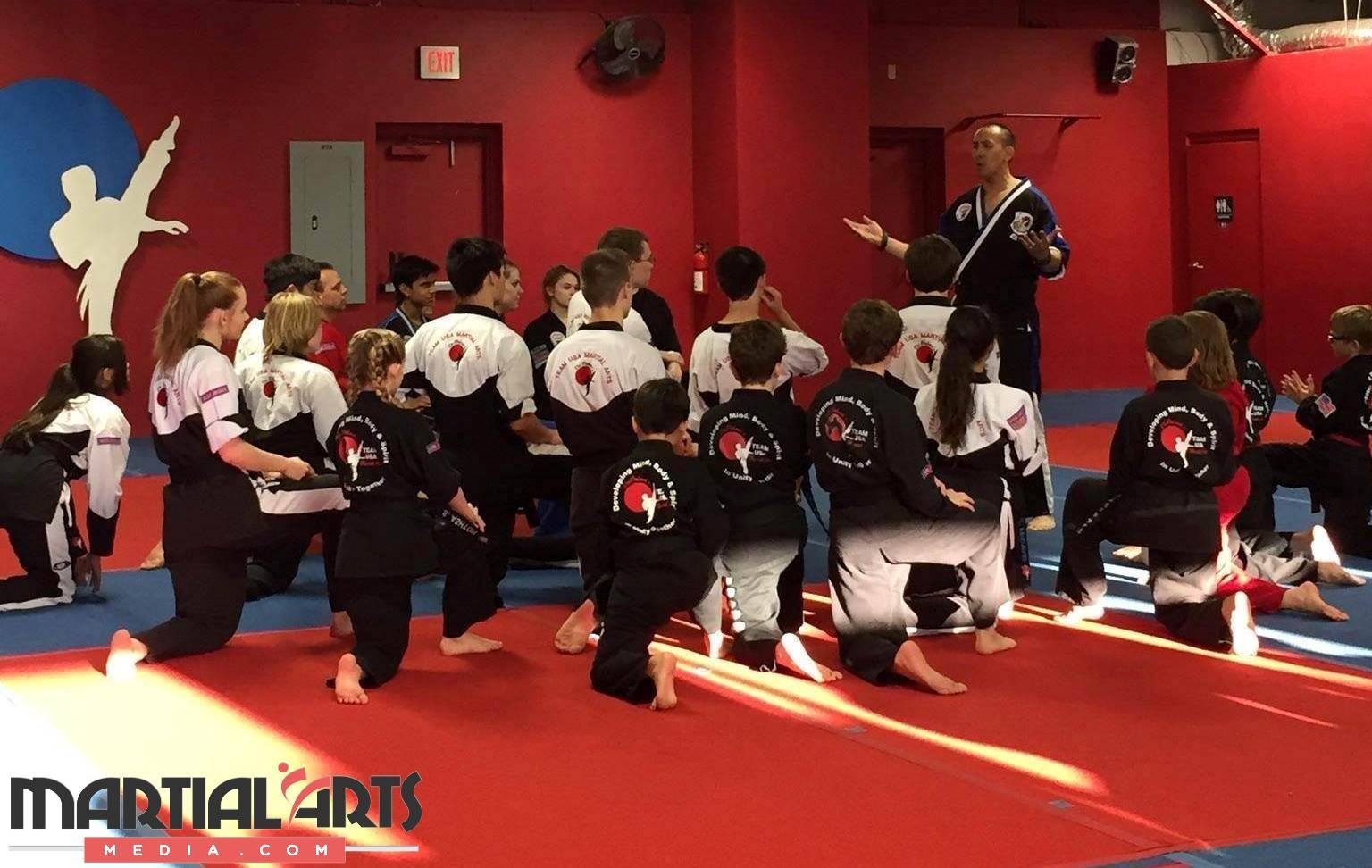

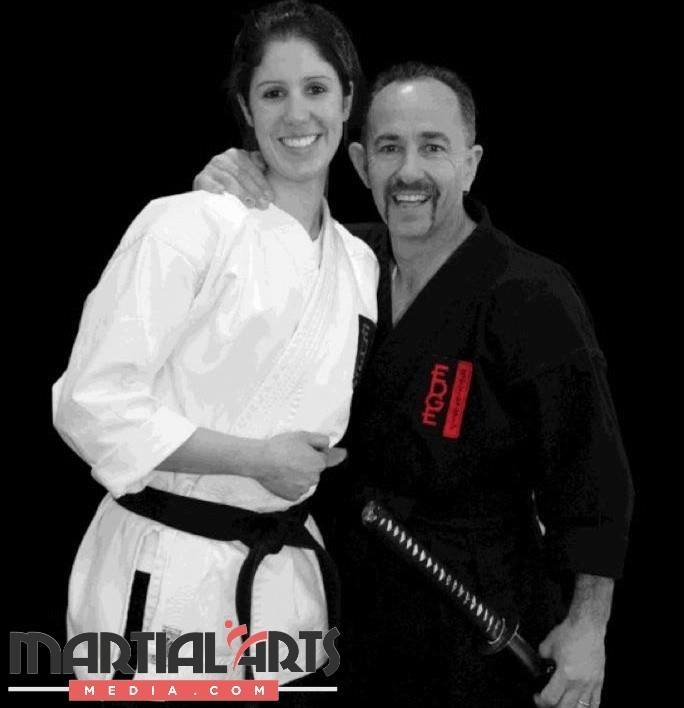
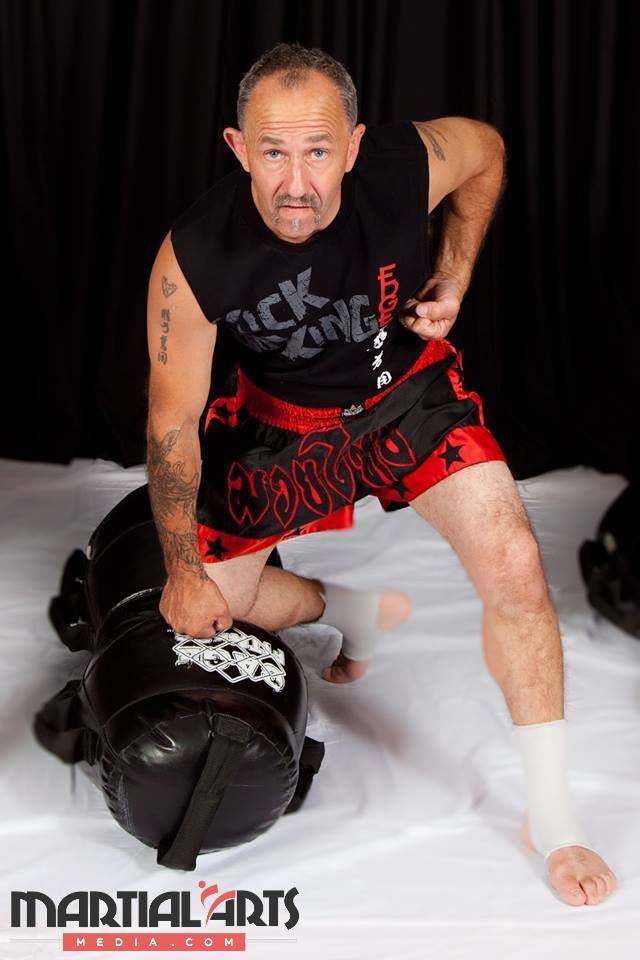
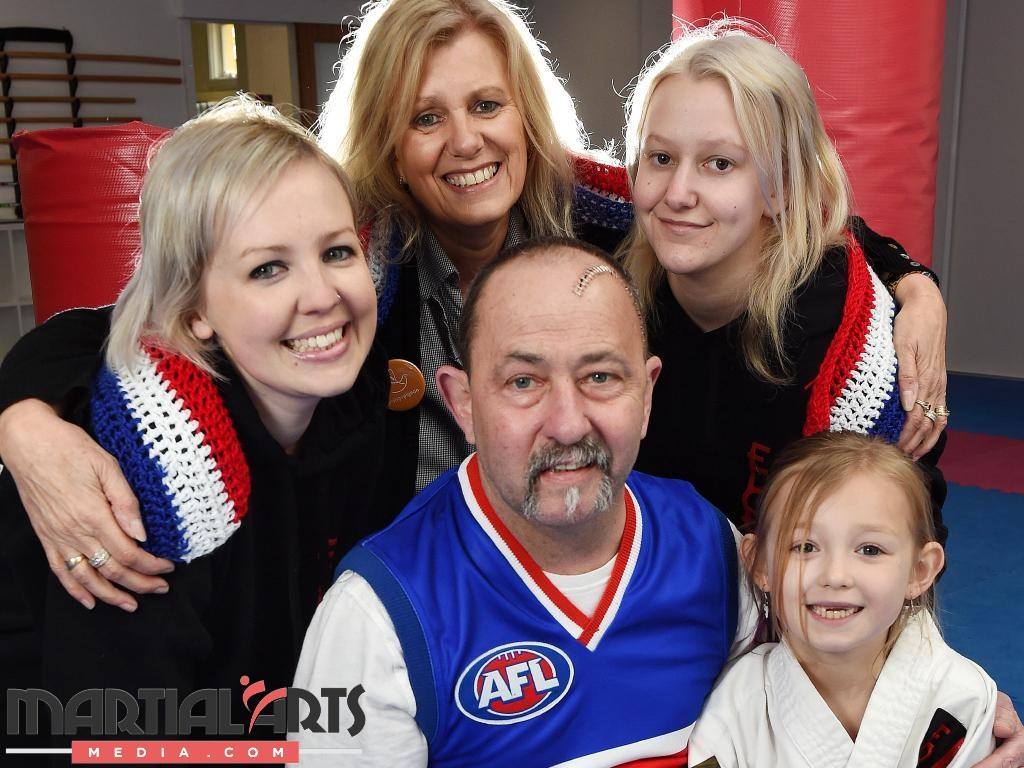
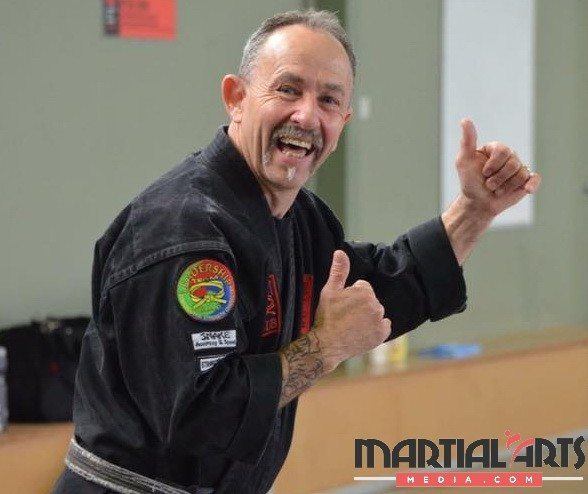

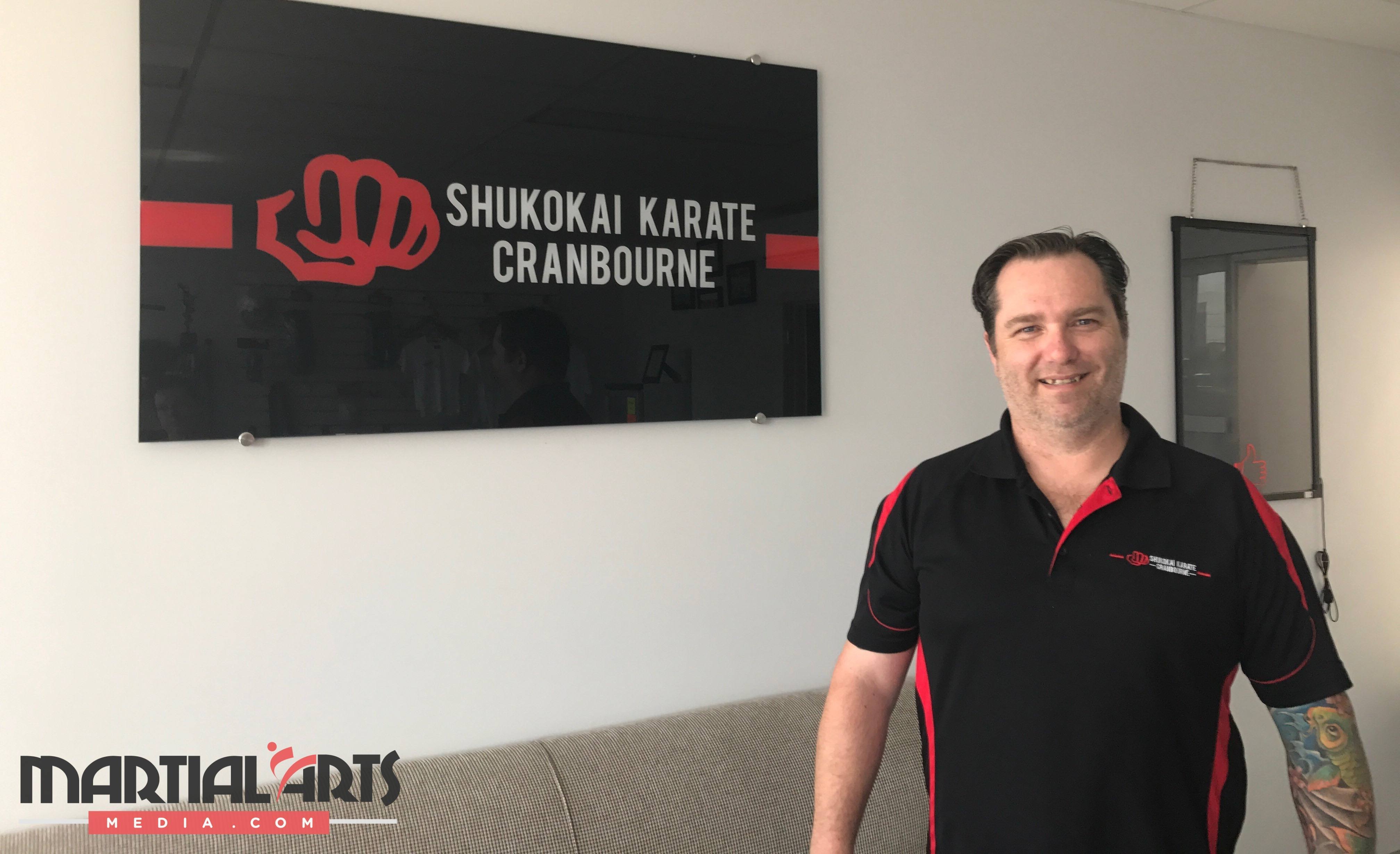 GEORGE
GEORGE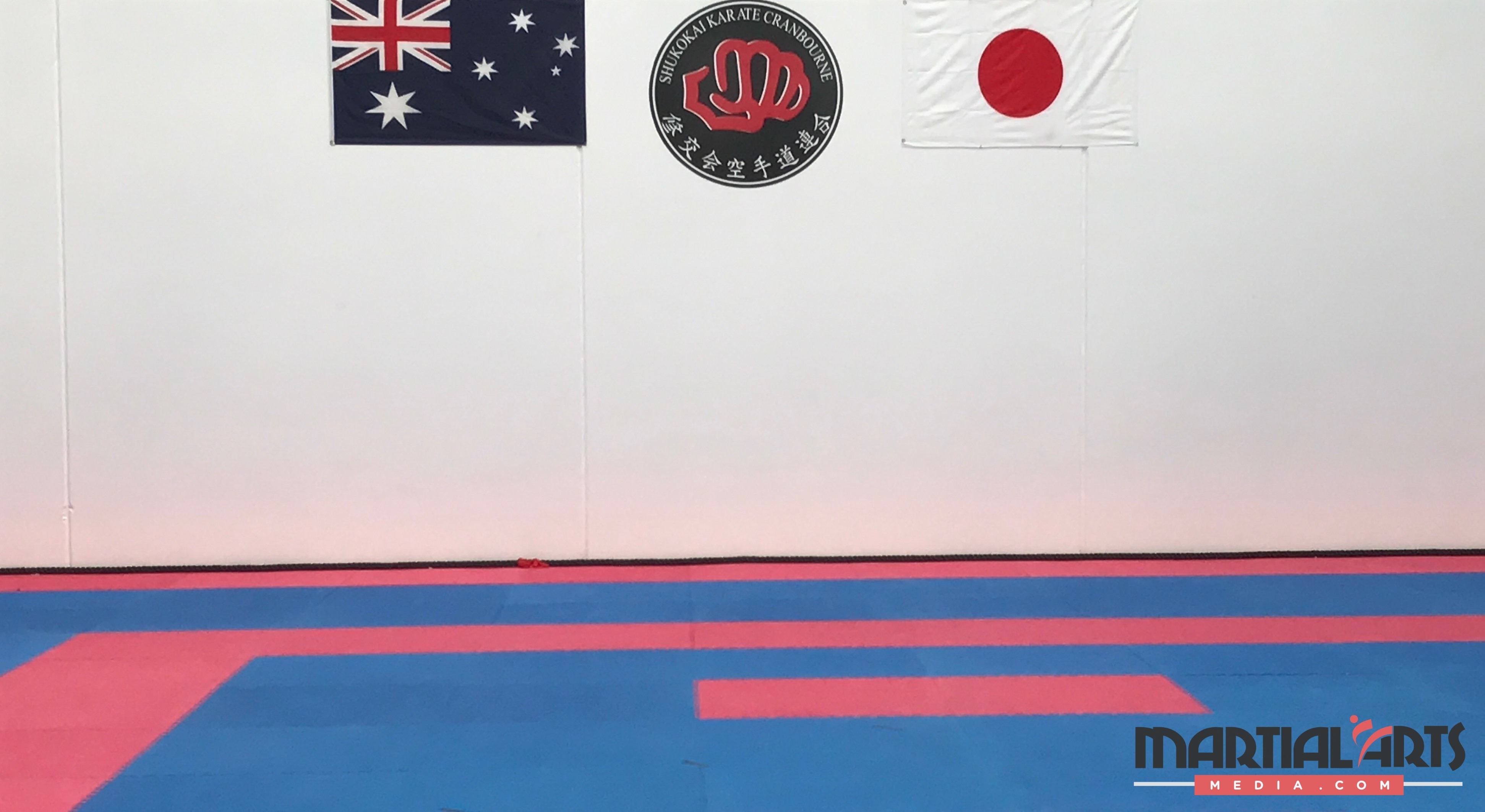 GEORGE
GEORGE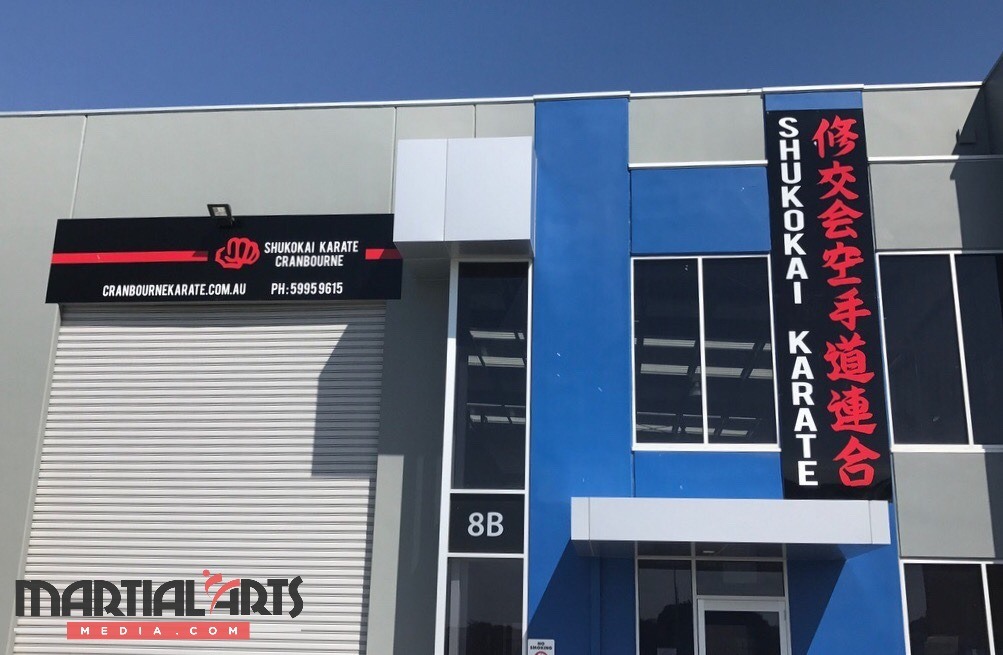 DARRYL
DARRYL
 You just rise to every challenge, and it doesn't always feel like you're winning because you're filled with fear sometimes. For me, the fear of losing was massive: could not lose, couldn't lose a point. I was just like that about winning, so you never really feel like you're winning, you feel like you're always behind the eight ball, because that person got that point, or you lost that five. Or you weren't as switched on, or you didn't have the amount of energy that you wanted for that sparring session, or you went into that with a fearful thought.
You just rise to every challenge, and it doesn't always feel like you're winning because you're filled with fear sometimes. For me, the fear of losing was massive: could not lose, couldn't lose a point. I was just like that about winning, so you never really feel like you're winning, you feel like you're always behind the eight ball, because that person got that point, or you lost that five. Or you weren't as switched on, or you didn't have the amount of energy that you wanted for that sparring session, or you went into that with a fearful thought. MICHELLE
MICHELLE is what's holding me back.” And a lot of the times, it’s one sentence that I’ll say, and they'll be like, “Oh my god, I never thought of it like that.” And it’s just because I have the perspective that they don't. We're all so close to our stuff and someone shining a light on it and looking at it from a completely different perspective is often all they need to get them thinking in a different way.
is what's holding me back.” And a lot of the times, it’s one sentence that I’ll say, and they'll be like, “Oh my god, I never thought of it like that.” And it’s just because I have the perspective that they don't. We're all so close to our stuff and someone shining a light on it and looking at it from a completely different perspective is often all they need to get them thinking in a different way. MICHELLE
MICHELLE

